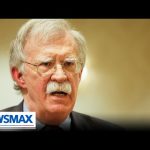Recent developments in the Middle East have brought a surprising acknowledgment of Donald Trump’s diplomatic impact, even from some unexpected voices across the political spectrum. Despite the former president facing relentless criticism from the mainstream media and political opponents, his firm approach to foreign policy is now being credited with laying the groundwork for breakthroughs in a region long plagued by conflict. The fact that Democrats like Senator John Fetterman are openly considering Trump’s efforts for a Nobel Peace Prize speaks volumes about the undeniable results of his decisive leadership.
House Minority Leader Hakeem Jeffries’s cautious praise of recent diplomatic moves also signals a rare moment of bipartisan recognition that strength and consistency in foreign policy can produce peace. This stands in stark contrast to the hesitancy seen in previous administrations. The Trump administration’s willingness to hold both allies and adversaries accountable, often through bold pressure tactics, marked a fresh strategy that many believed was too blunt but now appears effective. This pragmatic toughness is what America needs more of in a complex global landscape.
Contrast this with the Biden administration’s softer and more conciliatory approach, which insiders admit lacked the necessary leverage to sway critical players like Qatar and Turkey. Representative Dan Goldman’s admission that Biden’s methods failed to apply sufficient pressure underscores a costly lesson in diplomacy: being overly cautious may lead to prolonged strife rather than resolution. The delays in action under current leadership highlight the clear advantages of Trump’s unapologetic style, which demanded results instead of political correctness.
It is telling that even establishment media outlets, once biased against the former president, are now reluctantly recognizing the tangible progress following Trump-era strategies. The recent negotiations toward a ceasefire and hostage release underscore how real leadership with teeth can move mountains when diplomacy alone falls short. Yet, the silence from critics who previously screamed about genocide and injustice reveals a troubling double standard — their outrage seemed more political than principled, as they now shrink from acknowledging the positive strides toward peace.
In the end, the evolving situation underscores an important truth: effective diplomacy requires strength and resolve, qualities that Trump demonstrated in abundance. The shifting narrative should encourage leaders and citizens alike to critically assess what works in foreign policy rather than cling to partisan biases. If this moment leads to lasting peace, it will prove that bold, unyielding leadership sometimes delivers what cautious politicking cannot. Perhaps it’s time for skeptics to admit when real progress finally arrives.




